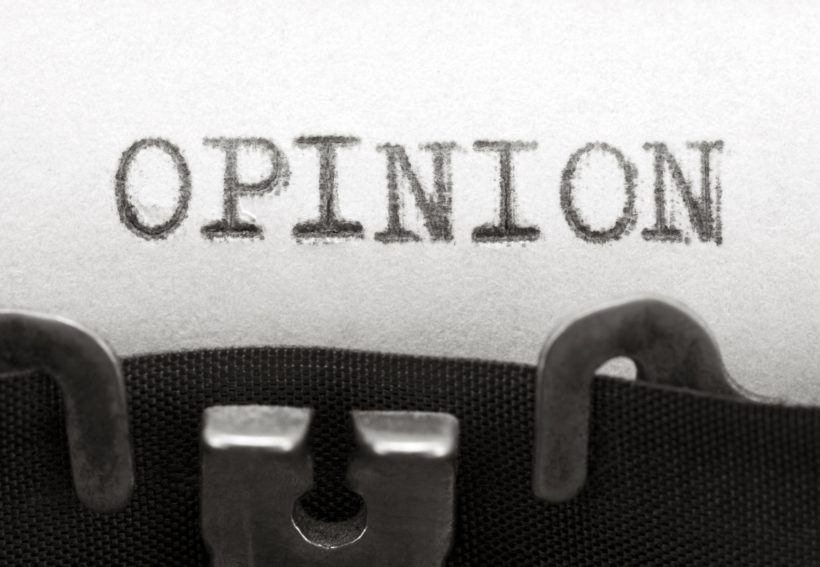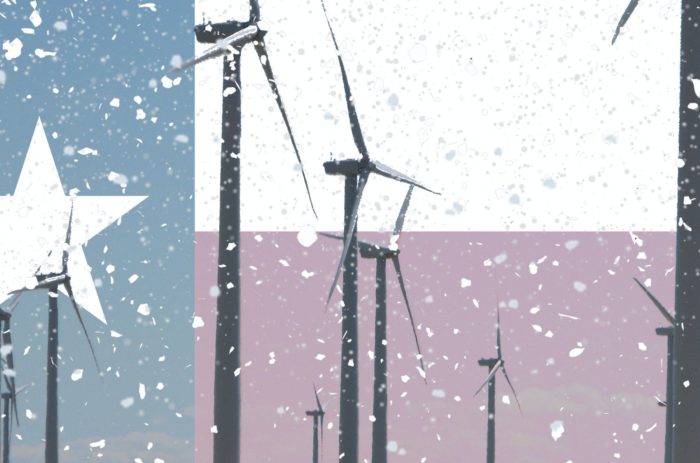
redo Jump to...
print Print...
HR 1 – The “For the People Act of 2021” was first proposed by congressional Democrats in 2019. They claim: “This bill addresses voter access, election integrity, election security, political spending, and ethics for the three branches of government. Specifically, the bill expands voter registration and voting access and limits removing voters from voter rolls.”
(by Larry O’Connor) — Thirty-five states currently have photo ID requirements for a voter to prove their identity before they are handed a ballot at a polling place. If Nancy Pelosi’s “HR 1” bill makes it past the Senate and to President Biden’s desk, those [states’] laws will be nullified.
Supporters of this abomination will call that assertion a lie or partial truth or whatever other euphemism “fact-checkers” wish to utilize. But that’s only because they ignore the English language.
HR 1 nullifies existing state photo ID requirements. Nullifies them.
nullify (verb) to make a legal agreement or decision have no legal force; to cause something to have no value or effect
HR 1 does not ban photo ID requirements. It does not erase photo ID requirements. It does not do away with photo ID requirements. It nullifies them. The state photo ID laws will remain on the books in those thirty-five states; they will just be useless.
HR 1 would force a state with photo ID laws (which the bill describes as “excessively onerous”) to offer a voter without photo ID the option to sign a statement under penalty of perjury that they are who they claim to be. Then that voter would be allowed to vote without presenting a photo ID for identification.
HR 1 nullifies existing state photo ID requirements. …
Why is this important? Because if you are in one of those thirty-five states, you and your fellow citizens have determined that ensuring that only those who are legally allowed to vote should do so. Photo ID is one of many important steps to ensure just that.
Voter ID protects your vote.
Opponents will say, “It’s already a felony to vote under someone else’s identity.” They’re right. They also ignore that this law is rarely investigated. What branch or division of your recently “defunded” police department will be devoting resources to hunt down people who showed up to vote as someone else?
It is also a felony to cash a check that isn’t made out to you. Do banks use the honor system the same way our polling locations do and just trust that the fear of prosecution keeps people from attempting to cash a check made out to another individual? Of course not. That would be stupid. The bank asks for a photo ID for verification of identity before handing over cash.
This protects the bank, protects their money and…. if you are a customer of that bank, it protects your money.
Why don’t we protect our voting system with the same basic precaution?
Photo ID at a bank prevents crime and protects the bank.
Voter ID prevents crime and protects your vote.
It really is that simple.
As HR 1 meanders its way through the Senate, there will be a full-throated and well-funded effort to push this abomination through under the guise of fairness and equal protection. Don’t fall for it….
If the discussion is about disenfranchisement, let’s understand something fundamental: Every vote cast by an ineligible voter disenfranchises a legal, eligible voter. That’s how it works.
The disenfranchised in a system where a voter’s identity can’t be verified are those who verify their identity, follow the law and cast a legal ballot.
We hear the phrase “voter suppression” a lot in this debate. We should not shy away from it. You bet I want to suppress the illegal, ineligible votes. Why don’t the Democrats?
Some votes (like those of non-citizens, or underage citizens, or duplicate voters) should be suppressed.
The majority of states have wisely put up some safeguards to help weed out many of the ineligible votes that would take place in a system that follows the HR 1 guidelines. Voter ID is just one of them, and in the upcoming days, we will address more problems with this atrocious bill.
But, for today, know this fundamental fact: Voter ID protects your vote. …
This fight is engaged right now in Washington, DC, and the only way to ensure our voting system moves in a fairer and more secure direction is to stop HR 1 and demand our states keep existing safeguards and add many more.
Every legal, valid vote should be counted, and all the rest should be investigated.
That’s not too much to ask… it’s the least you should demand.
Larry O’Connor is a conservative radio talk show host on WMAL in Washington D.C. Published March. 17, 2021 at Townhall. Reprinted here for educational purposes only.
Questions
1. Republicans say requiring ID is necessary to prevent voter fraud; Democrats say requiring ID to vote disenfranchises minority and lower income voters, who they say vote overwhelmingly for Democrats. How many states currently require photo ID to vote?
2. What will HR 1 do to the states’ photo ID requirements?
3. What arguments does Larry O’Connor use to support his opposition to HR 1?
4. Do you think Mr. O’Connor makes a persuasive case? (Does he make valid points? Valid is defined as having a sound basis in logic or fact.) Explain your answer.
5. HR 1 – The “For the People Act of 2021” was initially proposed by congressional Democrats in 2019. They say: “This bill addresses voter access, election integrity, election security, political spending, and ethics for the three branches of government. Specifically, the bill expands voter registration and voting access and limits removing voters from voter rolls.” Read the opposing points “What H.R. 1 Would Do” from a conservative group under the “Background” below. What do you think of each of the points made?
CHALLENGE: HR 1 will have a huge impact on how our elections are conducted, who is eligible to vote, etc.
a) Rasmussen Reports poll found that “75% of Likely U.S. Voters believe voters should be required to show photo identification such as a driver’s license before being allowed to vote.” (See “Resources” below for a previous video) What do you think?
b) Read the entire bill for yourself before you make a decision: congress.gov/bill/117th-congress/house-bill/1/text. What is your opinion: will HR 1 improve or harm elections? Ask a parent the same question.
Background
In March 2021, Rasmussen Reports found:
- 75% of Likely U.S. Voters believe voters should be required to show photo identification such as a driver’s license before being allowed to vote.
- Majorities of whites (74%), blacks (69%) and other minorities (82%) say voters should be required to show photo identification before being allowed to vote. Voters under 40 support voter ID laws more than do older voters.
- Voters who strongly approve of Joe Biden’s job performance as president were most likely to say voter ID laws are discriminatory.
The Issue
H.R. 1 federalizes and micromanages the election process administered by the states, imposing unnecessary, unwise, and unconstitutional mandates on the states and reversing the decentralization of the American election process—which is necessary for protecting our liberty and freedom.
The bill interferes with the ability of states and their citizens to determine qualifications for voters, to ensure the accuracy of voter registration rolls, to secure the integrity of elections, to participate in the political process, and to determine the district boundary lines for electing their representatives.
What H.R. 1 Would Do:
- Takes away the authority of states to regulate voter registration and the voting process by forcing states to implement early voting, automatic voter registration, same-day registration, online voter registration, and no-fault absentee balloting.
- Make it easier to commit fraud and promotes chaos at the polls through same-day registration, as election officials will have no time to verify the accuracy of voter registration information and cannot anticipate the number of voters, ballots, and precinct workers that will be needed.
- Hurt voter turnout through early voting …Voters who vote early don’t have the same information as those who vote on Election Day, missing late-breaking developments that could affect their choices.
- Degrade the accuracy of registration lists by automatically registering individuals from state databases, such as DMV and welfare offices, by registering large numbers of ineligible voters, including aliens as well as multiple or duplicate registrations of the same individuals.
- Constitute a recipe for massive voter registration fraud by hackers and cyber criminals through online voter registration not tied to an existing state record, such as a driver’s license.
- Require states to count ballots cast by voters outside of their assigned precinct (voting location), overriding the precinct system used by almost all states that allows election officials to monitor votes, staff polling places, provide enough ballots, and prevent election fraud. Mandates no-fault absentee ballots, which are the tool of choice for vote thieves.
- Prevent election officials from checking the eligibility and qualifications of voters and remove ineligible voters. This includes restrictions on using the U.S. Postal Service’s national change-of-address system to verify the address of registered voters; participating in state programs that compare voter registration lists to detect individuals registered in multiple states; or ever removing registrants due to a failure to vote no matter how much time has gone by.
- Cripple the effectiveness of state voter ID laws by allowing individuals to vote without an ID and merely signing a statement in which they claim they are who they say they are.
- Violate the First Amendment and could cover a vast range of legal activity. Voter intimidation or coercion that prevents someone from registering or voting is already a federal crime under the Voting Rights Act and the National Voter Registration Act. But H.R. 1 adds an additional provision to prevent interference with registering or voting that is so vague that it could easily interfere with free speech and other lawful activity.
- Expand regulation and government censorship of campaigns and political activity and speech, including online and policy-related speech. H.R. 1 imposes onerous legal and administrative compliance burdens and costs on candidates, citizens, civic groups, unions, corporations, and nonprofit organizations. Many of these provisions violate the First Amendment, protect incumbents, and reduce the accountability of politicians to the public.
- Reduce the number of Federal Election Commission members from six to five, allowing the political party with three commission seats to control the commission and engage in partisan enforcement activities. (the Commission is currently bi-partisan: 3 Democrats and 3 Republicans)
- Prohibit state election officials from participating in federal elections and impose numerous other “ethics” rules that are unconstitutional or unfairly restrict political activity.
- Require states to restore the ability of felons to vote the moment they are out of prison. Section 2 of the 14th Amendment gives states the constitutional authority to decide when felons who committed crimes against their fellow citizens may vote again. Congress cannot override a constitutional amendment with a statute.
- Transfer the right to draw congressional districts from state legislatures to “independent” commissions whose members are unaccountable to voters. H.R. 1 makes it a violation of federal law to engage in “partisan” redistricting and mandates inclusion of alien population, both legal and illegal, in all redistricting. This is an anti-democratic, unconstitutional measure that takes away the ability of the citizens of a state to make their own decision about redistricting.
- Violate separation of powers and directly interfere with the President’s constitutional duties. H.R. 1 bans the President’s political appointees, such as the Attorney General, from participating in, directing the defense of, or assisting in any matter (including lawsuits against a President’s policies, programs, executive orders, or his enforcement of the law) in which the President is named as a party. (from heritage.org)
Resources
Watch a Video – Photo ID and voting:
(from our Election Resources page “Voting Issue #4 – Voting ID Laws“)

